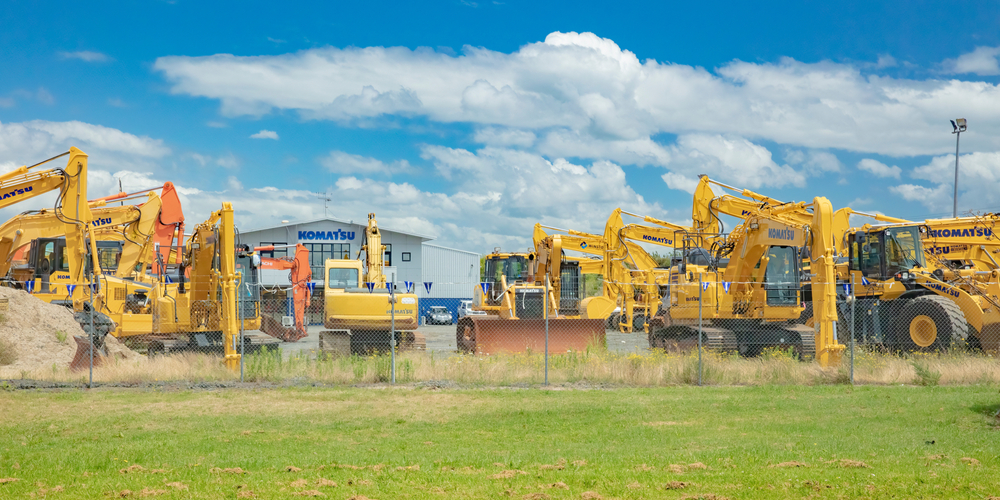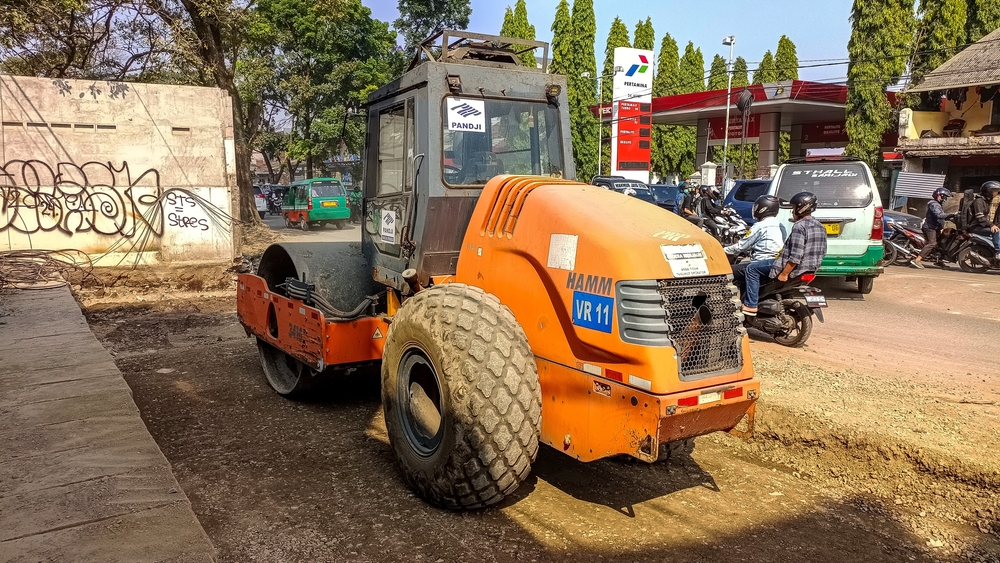Operating big farming equipment is a crucial aspect of modern agriculture, requiring specialized skills, training, and strict adherence to safety guidelines.
With the rapid advancements in agricultural machinery, it is essential for operators to be well-equipped with the knowledge and expertise needed to handle these powerful machines efficiently and safely.
Types of Big Farming Machinery
Big farming equipment refers to the large, powerful machines used in various agricultural tasks, such as planting, harvesting, plowing, and spraying.
These machines are designed to improve efficiency and productivity on farms but require careful handling and operation due to their size and complexity.
Common types of big farming equipment include:
- Tractors: The backbone of modern farming, tractors are used for a wide range of tasks, from plowing fields to transporting heavy loads.
- Combines: These machines are essential for harvesting crops, combining the functions of reaping, threshing, and cleaning grain in one operation.
- Plows: Used for turning and loosening soil, plows are vital for preparing fields for planting.
- Sprayers: These machines apply pesticides, herbicides, and fertilizers, ensuring crops receive the necessary nutrients and protection from pests.
Essential Skills for Operating Big Farming Equipment
Operating big farming equipment requires a unique set of skills that combine mechanical knowledge, driving proficiency, and field awareness.
These skills ensure that operators can handle large machinery efficiently and safely, maintaining optimal performance while minimizing risks. Key skills include:
Mechanical Knowledge
Understanding the mechanics and maintenance of farming equipment is crucial. Operators should be able to:
- Troubleshoot Minor Issues: Quickly identify and resolve common mechanical problems to prevent downtime.
- Perform Routine Maintenance: Conduct regular maintenance tasks such as oil changes, filter replacements, and checking hydraulic systems to keep equipment in peak condition.
- Ensure Optimal Working Condition: Monitor machinery performance and make necessary adjustments to ensure efficient operation.
Driving Skills
Maneuvering large machines requires excellent driving skills, including the ability to:
- Navigate Tight Spaces: Safely operate equipment in confined areas, avoiding obstacles and ensuring precision.
- Manage Varying Terrains: Adapt to different field conditions, whether it’s rough, uneven ground or soft, muddy soil.
- Operate in Adverse Weather Conditions: Maintain control and safety when working in rain, snow, or extreme temperatures.
Field Awareness
Operators must be highly aware of their surroundings to ensure efficient and safe operation. This includes:
- Monitoring Field Conditions: Continuously assess the state of the fields to avoid hazards and adjust operations as needed.
- Being Conscious of Other Workers: Keep an eye on the location and activities of other workers to prevent accidents.
- Identifying Potential Obstacles: Spot and navigate around obstacles such as rocks, ditches, and equipment.
Training Programs and Certifications
Proper training is essential for anyone looking to operate big farming equipment safely and effectively. Various training programs and certifications are available to equip operators with the necessary skills and knowledge. Key training programs include:
Operator Training Courses
These courses cover the basics of machinery operation, safety protocols, and maintenance procedures. Many agricultural colleges and technical schools offer such programs, providing a solid foundation for new operators.
Manufacturer Training
Equipment manufacturers often provide specialized training on their products, ensuring operators are familiar with the specific features and requirements of the machines they will be using. This training is crucial for understanding the nuances of different equipment models and maximizing their performance.
Certification Programs
Obtaining certifications from reputable organizations, such as the National Association of Agricultural Educators (NAAE) or the American Society of Agricultural and Biological Engineers (ASABE), can enhance an operator’s credentials and job prospects. These certifications validate an operator’s expertise and commitment to safety and efficiency.
Highlighting Reputable Institutions
For example, the NAAE offers comprehensive training and certification programs that cover various aspects of agricultural machinery operation. Their programs ensure operators are well-prepared to handle big farming equipment, combining theoretical knowledge with practical experience.
Developing these essential skills and completing the appropriate training programs can ensure operators that they are well-equipped to handle big farming equipment effectively and safely, contributing to the success and productivity of modern agricultural operations.
Safety Guidelines
Safety is paramount when operating big farming equipment. Adhering to comprehensive safety guidelines is essential to prevent accidents and injuries.
These guidelines encompass personal protective equipment, routine safety checks, safe operation practices, and adjustments for varying weather and terrain conditions.
Personal Protective Equipment (PPE)
Operators should wear appropriate PPE to protect themselves from potential hazards. Essential PPE includes:
- Helmets: Protect the head from falling objects and collisions.
- Gloves: Safeguard hands from cuts, abrasions, and chemical exposures.
- Safety Glasses: Shield eyes from debris, dust, and harmful chemicals.
- Hearing Protection: Use earplugs or earmuffs to protect against prolonged exposure to loud machinery noise.
- High-Visibility Clothing: Ensures operators are easily seen by others, especially in low-light conditions.
Routine Safety Checks and Maintenance
Regular inspections and maintenance are crucial to ensure equipment is in safe working condition. Key steps include:
- Pre-Operation Inspections: Conduct a thorough check of the machinery before each use, including brakes, tires, lights, and hydraulic systems.
- Checking for Worn Parts: Regularly inspect belts, hoses, and other components for wear and tear, replacing them as needed to prevent breakdowns.
- Ensuring Proper Fluid Levels: Maintain adequate levels of oil, coolant, and other fluids to ensure smooth operation and prevent overheating.
- Cleaning and Lubrication: Keep equipment clean and well-lubricated to reduce friction and wear on moving parts.
Safe Operation Practices
Operators should be trained in safe operation practices to mitigate risks. Important practices include:
- Adjusting Speed According to Field Conditions: Slow down when navigating rough or uneven terrain and maintain a steady speed in smoother conditions.
- Maintaining Safe Distances: Keep a safe distance from other workers and machinery to avoid collisions and accidents.
- Using Safety Features: Ensure that roll-over protective structures (ROPS), seat belts, and other safety features are in place and used correctly.
- Clear Communication: Use hand signals or radios to communicate with other workers, ensuring everyone is aware of the equipment’s movements and activities.
Weather and Terrain Considerations
Different weather conditions and terrains pose unique challenges for operating big farming equipment. Operators should be trained to adjust their operations accordingly:
- Navigating Muddy Fields: Reduce speed and use low gears to prevent slipping and maintain control. Avoid making sharp turns to reduce the risk of getting stuck.
- Operating in Extreme Heat: Monitor the machinery’s temperature to prevent overheating, and take regular breaks to avoid heat exhaustion.
- Working in Cold Conditions: Ensure the equipment is properly winterized, with antifreeze levels checked and engines warmed up before use. Wear appropriate clothing to stay warm and maintain dexterity.
- Handling Sloped Terrain: Drive perpendicular to the slope to maintain stability and avoid rollovers. Use low gears and reduce speed to maintain control.
Conclusion
Operating big farming equipment demands a combination of specialized skills, rigorous training, and strict adherence to safety guidelines.
The complexity and power of modern agricultural machinery make it essential for operators to undergo comprehensive training programs and obtain relevant certifications.
Embracing technological advancements can further enhance both the efficiency and safety of these operations. Continuous learning ensures that operators stay current with evolving best practices and innovative technologies in the industry.
Adhering to safety protocols is vital, not only for preventing accidents but also for fostering a culture of safety and responsibility on the farm.









